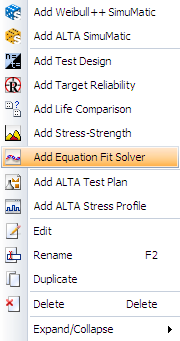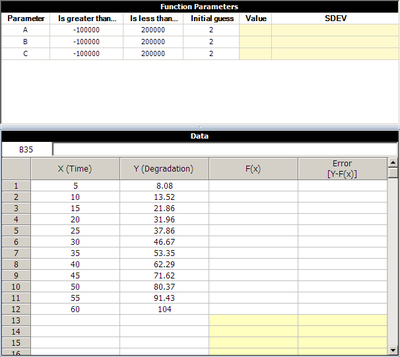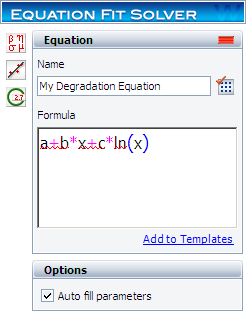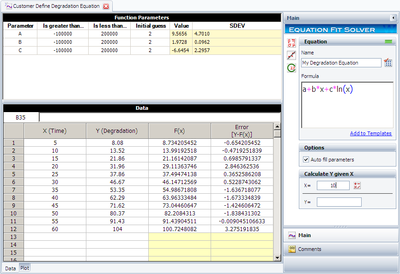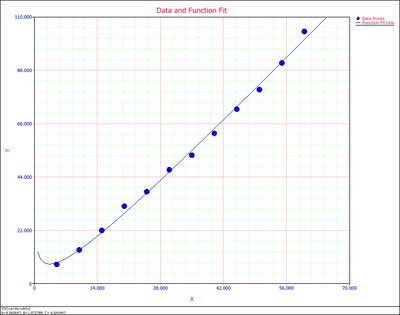Template:Weibull++ Equation Fit Solver Example: Difference between revisions
No edit summary |
No edit summary |
||
| Line 36: | Line 36: | ||
::<math>y=a+bx+c\ln (x)</math> | ::<math>y=a+bx+c\ln (x)</math> | ||
where: | where: <br> | ||
• x is the time | |||
• y is the degradation reading. | •* x is the time | ||
•* y is the degradation reading. | |||
This above model is not a standard degradation model in Webul++. It can be solved using the equation fit solver. | This above model is not a standard degradation model in Webul++. It can be solved using the equation fit solver. | ||
Revision as of 17:24, 7 March 2012
Weibull++ Equation Fit Solver Example
Equation Fit Solver can be used to do linear and nonlinear regression. Assume an engineer collected the following degradation data.
| Time | Reading |
| 5 | 8.08 |
| 10 | 13.52 |
| 15 | 21.86 |
| 20 | 31.96 |
| 25 | 37.86 |
| 30 | 46.67 |
| 35 | 53.35 |
| 40 | 62.29 |
| 45 | 71.62 |
| 50 | 80.37 |
| 55 | 91.43 |
| 60 | 104.00 |
From the physical mechanism, the engineer knows the degradation path follows the following equation:
- [math]\displaystyle{ y=a+bx+c\ln (x) }[/math]
where:
•* x is the time •* y is the degradation reading.
This above model is not a standard degradation model in Webul++. It can be solved using the equation fit solver.
Solution:
Step 1: Create an Equation Fit Solver Folio
Step 2: Enter the above data into the folio
Step 3: Enter the user defined degradation function at the control panel and name it “My Degradation Equation”.
Step 4: Calculate it and the results are:
Step 5: You can use the “Calculate Y given X” to make prediction. For example, the predicted Y value at X=100 is 176.2424.
'Step 6: The plot of the fitted model and the observed values are given as:
